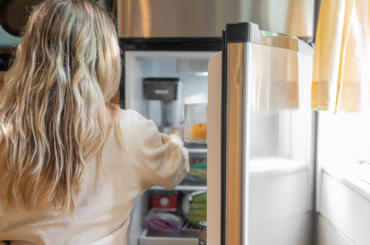Part of the big job of parenting is preparing children to become independent, decision-making adults. There are so many life skills kids must learn before they move out on their own, and managing their own healthcare can be one of the most challenging skills to master — especially for kids with chronic illnesses or mental health disorders, which includes millions of kids and teens across the United States.
Preparing your child to manage their own healthcare as adults should start earlier than you might think. Experts recommend gradually giving kids more control of their healthcare decisions and responsibilities as they get older. Here’s what that might look like in your family —
By the age of 13, your child should be able to…
- Name and explain the basics of any medical condition they have;
- Know which medications they take and why;
- Be able to list any allergies they have;
- Feel empowered to ask questions during medical appointments. (It might help them feel more comfortable doing so if you step out of the room briefly during their appointments.)
By the age of 17, your child should be able to…
- Explain their health history including any surgeries, hospitalizations, or medical treatments;
- Explain their significant family medical history;
- Know the contact information of their current and previous healthcare providers;
- Know the proper dosages of their medications and any dangerous interactions they could have with other substances;
- Know the contact information of their pharmacy and how to fill a prescription.
By the age of 21, your child should be able to…
- Choose a primary care provider, and know when it’s time to make appointments with a primary care provider vs. other options like urgent care or the emergency room.
- Know how to find and transfer their medical records;
- Understand the basics of health insurance. This helpful guide is written just for teens!
- If their coverage through a parent or guardian’s insurance expires at age 26, they should have a plan for continuing their coverage after that.
How can parents help ease the transition?
Especially for kids who are managing more complex health issues, experts recommend that parents be a little flexible with their expectations of how their child will manage their own care. Teens are naturally risk-taking and prone to pushing back against rules and questioning authority.
Their brains are wired to prioritize short-term goals like making friends and having new experiences over longer-term goals like maintaining good physical health. Approaching this transition with an open mind, and understanding that your child will most likely not be totally compliant with their care routine, but will do their best, can help you support them without judgment.
Include your teen in their healthcare decisions by asking them what their personal goals and priorities are, and then talking through how to achieve those goals together in collaboration with healthcare providers. For example, if your child wants to run track in college, but has a knee injury and struggles to follow their physical therapy regimen, you might talk about ways to stick to physical therapy after moving away from home in order to stay healthy for track.
Most importantly, make sure your teen understands that their body and choices are ultimately theirs and that you trust them to make good decisions for themselves. Keep the door open for nonjudgmental communication about anything they need to talk about. Leading with empathy and trust can help your kids feel more comfortable coming to you about more sensitive healthcare concerns as they manage more of their own care independently.







